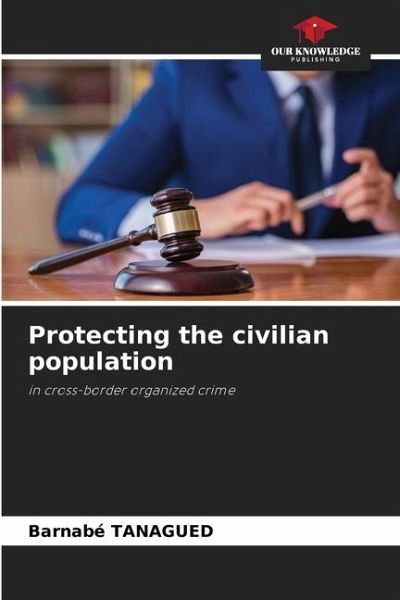
Protecting the civilian population
in cross-border organized crime
Versandkostenfrei!
Versandfertig in 6-10 Tagen
29,99 €
inkl. MwSt.

PAYBACK Punkte
15 °P sammeln!
The growing phenomenon of cross-border organized crime is a reality that spares no state in the world, both in terms of its consequences and its rapid expansion. The extent of its expansion today calls for solid, inclusive strategies based on factual data and backed up by international, regional and state legal frameworks. Efforts are commendable, but they have remained circumscribed around the primary victims of the phenomenon of cross-border organized crime. The international community is becoming increasingly aware of the need for a global response, with the adoption of the United Nations C...
The growing phenomenon of cross-border organized crime is a reality that spares no state in the world, both in terms of its consequences and its rapid expansion. The extent of its expansion today calls for solid, inclusive strategies based on factual data and backed up by international, regional and state legal frameworks. Efforts are commendable, but they have remained circumscribed around the primary victims of the phenomenon of cross-border organized crime. The international community is becoming increasingly aware of the need for a global response, with the adoption of the United Nations Convention and its Protocols, but the civilian population has been forgotten. As part of the drive to develop solid, inclusive strategies, equal importance needs to be given to all areas and categories requiring protection as a result of the movement of organized cross-border crime.














